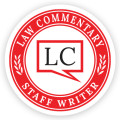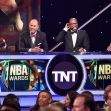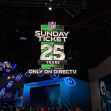DirecTV has lodged a formal complaint with the Federal Communications Commission (FCC) against Disney, accusing the media giant of failing to “negotiate in good faith” amidst an ongoing distribution dispute. The conflict erupted after the previous agreement between the two companies expired on September 1, leading Disney-owned channels, including ESPN and ABC, to be removed from DirecTV’s service. This blackout has significantly affected millions of subscribers, leaving them unable to access major events such as the NFL season opener, an upcoming presidential debate on ABC, along with other news and entertainment.
In its complaint, DirecTV alleges that Disney's negotiation tactics are violating the FCC’s good faith mandates. The complaint specifically criticizes Disney's insistence on bundling requirements and minimum penetration demands, which DirecTV argues is anticompetitive behavior.
Bundling requirements and minimum penetration demands are contractual terms in media and telecommunications deals. Bundling requires distributors to carry multiple channels or services as a package, rather than individually, which can force them to include less popular channels alongside popular ones.
Minimum penetration demands set a baseline for how widely a content provider’s channels must be distributed, ensuring they reach a certain number or percentage of households. Critics argue that these practices can limit consumer choice and impose unfair conditions on distributors.
In DirecTV's complaint against Disney, DirecTV contends that Disney's demands are anticompetitive and potentially impacting the fairness of the negotiation process and market competition.
Additionally, DirecTV contends that Disney is demanding that DirecTV waive any legal claims related to Disney's alleged past and present anticompetitive behavior. The complaint states, “Along with these anticompetitive demands, Disney has also insisted that DirecTV agree to a ‘clean slate’ provision and a covenant not to sue, both of which are intended to prevent DirecTV from taking legal action regarding Disney’s anticompetitive demands, which would include filing good faith complaints at the Commission. Not three months ago, however, the Media Bureau made clear that such a demand itself constitutes bad faith.”
Disney has since released a statement emphasizing that the company is committed to restoring access to its content and accuses DirecTV of “creating diversions” rather than focusing on reaching a deal. In the complaint, Disney argues that provisions such as the “clean slate” agreement, which DirecTV claims are indicative of bad faith, are standard in such negotiations and have been part of previous agreements between the companies.
As the investigation continues, the FCC will need to determine whether Disney’s actions have violated any federal rules and what measures, if any, should be taken to address the alleged misconduct.






